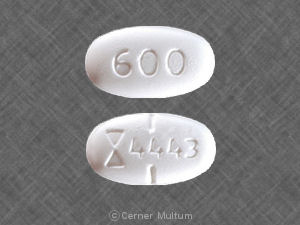Gabapentin is approved to treat the type of nerve pain (neuralgia) that results from nerve damage. Gabapentin is used to treat neuralgia caused by a herpes zoster viral infection, also known as shingles.

This pain is called post-herpetic neuralgia (PHN), and it can be severe and chronic. Gabapentin is also used to treat pain from diabetic neuropathy, which happens when nerves in the feet damaged by diabetes cause chronic burning pain.
The exact way that gabapentin works to relieve pain is not known. It may change the way the body senses and reacts to pain. Gabapentin is used to manage long-term (chronic) pain, not to be taken for pain as needed. Chronic pain can interfere with sleep and work, and lead to depression.
Studies show that pain relief may start within one week and reach a maximum effect in about 4 weeks. It can take this long because gabapentin is usually started at a low dose and gradually increased over time until it works.
For treating neuralgia, gabapentin is often started at 300 mg per day and gradually raised by 300 mg per day. One 2017 review of 37 studies found that pain relief usually occurs at a dose of 1,200 mg or more.
The same review compared gabapentin to an inactive medicine (placebo) in almost 6,000 adults with chronic pain from PHN or diabetic neuropathy. Study participants were given either gabapentin or a placebo for 4 to at least 12 weeks. The results showed that 30-40% of people taking gabapentin were able to reduce their pain by half or more, compared to 10-20% of people taking the placebo.
Although some people may get significant relief, others may have side effects without relief of pain. More than half of people taking gabapentin did not get significant relief and had side effects from the drug.
According to the review, about 60% of people taking gabapentin had side effects, including:
-
-
- Dizziness
- Sleepiness
- Water retention (edema)
- Clumsiness while walking (ataxia)
-
It does not typically make pain worse: In trials comparing gabapentin side effects to placebo side effects, only 1% of people reported increased pain, and this was the same for gabapentin and placebo.
Once you find the dose that relieves neuralgia for you, it is important not to stop taking it suddenly. Stopping suddenly can lead to withdrawal symptoms such as:
-
-
- Anxiety
- Insomnia
- Nausea
- Pain
- Sweating
-